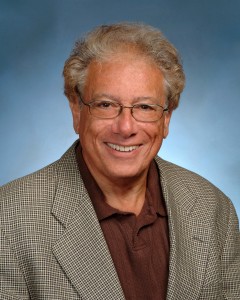The use of negative epithets such as “geezer,” “crone,” “coot,” “old bat,” and “old f-t” in everyday language helps contribute to ageism in our society, says IIT Chicago-Kent Professor Howard C. Eglit, a nationally recognized authority on law and aging issues. Eglit is the author of a new book: Age, Old Age, Language, and Law: A Dysfunctional—Often Harmful—Mix and How to Fix It.
Professor Eglit’s book focuses on the uses and misuses of language as a mechanism both for creating and for nurturing ageism, i.e., age-based bias directed against the elderly. He contrasts these and the use of other negative epithets, descriptive words and terms such as “crotchety,” “wizened,” “over-the-hill,” “used up,” and “curmudgeonly” with the absence of comparable negative terms regarding the middle-aged and the young.
“This is not simply coincidence,” says Eglit. “Language is used to express real, hard-core antipathy against old people and old age.”
In his book, Eglit discusses other ways in which the media degrade and demean older men and women. “So-called ‘gosh isn’t s/he amazing’ stories in the press, whereby some elderly man or woman is extolled for jumping from a parachute at age 90 or for climbing Mt. McKinley, are really subtly indirect ways of planting in peoples’ minds the notion that such daredevils are the very rare exception because most old people are decrepit and incapable of doing much of anything.”
Eglit’s book also focuses on two metropolitan newspapers—the New York Times and Chicago Tribune—and gives examples of what he characterizes as their regular use of pejorative language. “Since the New York Times is supposed to be our national newspaper of record, it serves as a journalistic model. Unfortunately, that model—when it comes to writing about the elderly—falls sadly short.”
Eglit cites “supposedly humorous” greeting cards that dwell upon the sexual inadequacies of old men, the drooping physical features of aging women, the digestive ills of the old, and most commonly, the forgetfulness of old folks who simply don’t have, according to these cards, working memories anymore. “Actually,” Eglit commented, “humor that turns on the foibles and inadequacies of the elderly has been the stock-in-trade of comedians for years. Just recall Jonathan Winters’ Maude Frickert, Dana Carvey’s Church Lady, and Johnny Carson’s Aunt Blabby routines about old folks.”
Movies and television programs also contribute to ageism in popular culture, notes Eglit in his book. “Older people rarely are seen. If they are depicted, they are virtually never heroes or heroines; rather they are typically cantankerous oddballs or passive observers.”
According to Eglit, “The ultimate problem is that these negative portrayals and the pejorative language problem do real harm.” His book cites studies showing that older people who are indoctrinated to believe that old age means decline wind up performing less well physically and intellectually because of being primed to perform poorly.
“Their health can be adversely affected by this indoctrination,” he says. “And of course, children and young adults, trained to believe that old people and old age are bad, wind up believing this propaganda, thereby becoming fearful, young biased ageists who, as they age, become fearful, old, biased ageists.
In Age, Old Age, Language, and Law, Professor Eglit proposes some solutions, while admitting that none of them are by any means perfect. He suggests more education, self-regulation by the media and public rejection of ageist language as a start. “While pejorative terms and epithets related to sex and race are not tolerated, comparable words and phrases used against the elderly are rarely questioned.”
Eglit offers these suggestions with the recognition that the overall struggle is a hard one.
“I am not foolish enough,” he writes, “nor am I optimistic enough to believe that the solution for the vice of old ageism is simply language change. Old ageism is incredibly pervasive throughout American culture, practice, politics and economics.”
“The bottom line is this: trying to do something is better than just doing nothing.”

